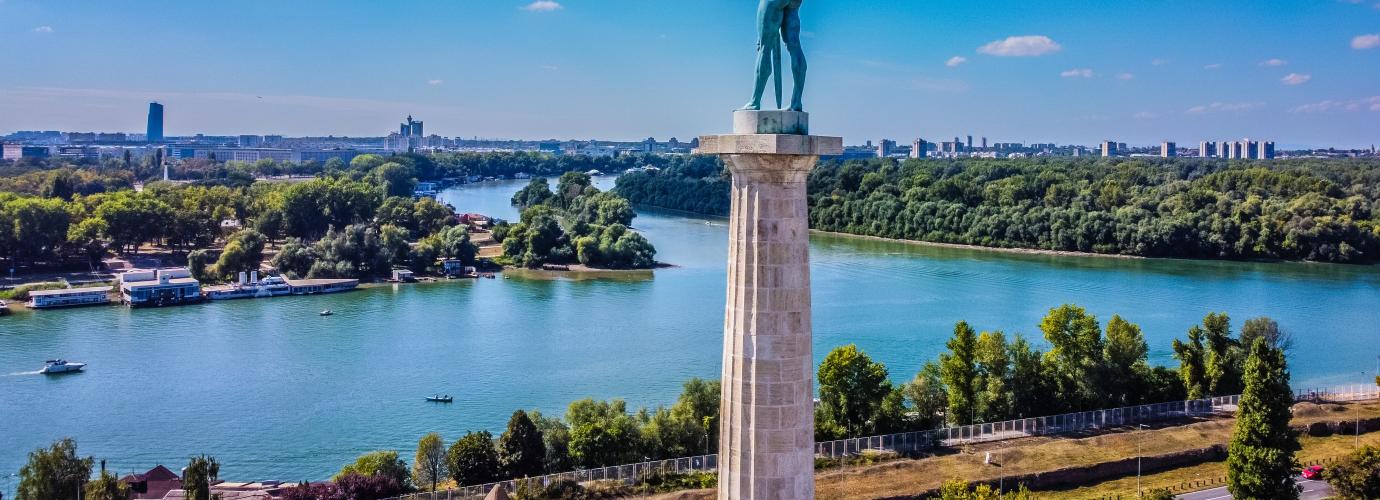In accordance with Article 71 of the Constitution of the Republic of Serbia, everyone shall have the right to education. Primary education is mandatory and free, secondary education is free and all citizens shall have access to higher education under equal conditions. A preparatory preschool programme is mandatory and free of charge.
In accordance with the general principles of the education system in Serbia, set in the Law on the Education System Foundations, the education system must provide equal rights and access to education to all children, students, and adults, without discrimination and separation of any kind. General principles also include the provision of good quality and balanced education, education in a democratic and socially responsible institution, child and student-centred education, equal opportunities for education at all levels and types of education in line with children, students and adults’ needs as well as work training harmonised with the contemporary requirements of their future profession.
The education system shall also provide efficient cooperation with students’ families, e the labour market, local community and it should ensure efficient, economic, and flexible organisation of the system and openness to pedagogical and organisational innovations.
The objectives set in the Law on the Education System Foundations are:
- ensuring the well-being and supporting the overall development of a child, student, and adult
- providing a stimulating and safe environment for the overall development of a child, student and adult and developing non-violent behaviour
- wider coverage of children in the ECEC system and comprehensive inclusion of students in the education system in general
- adopting healthy lifestyles, developing physical abilities, raising awareness of the importance of health and safety
- raising awareness of the importance of sustainable development, protection and preservation of nature, environment, and environmental ethics
- continuous improvement of the quality of the education process and outcomes based on proven scientific knowledge and educational practice
- development of competencies for active participation in a changing modern society
- full intellectual, emotional, social, moral, and physical development of each child, student, and adult, following their age, developmental needs, and interests
- development of key competencies for lifelong learning, cross-curricular competencies, and professional competencies in accordance with the requirements of a profession, needs of the labour market and modern science and technological development
- raising self-awareness, developing creative skills, critical thinking, learning motivation, teamwork skills, self-evaluation skills, encouraging self-initiative and attitudes’ expression
- training for making valid decisions on choosing further education and an occupation, personal development, and future life
- development of positive human values and attitudes
- development of the sense of solidarity, understanding, cooperation and friendship
- development of competencies for understanding and respecting the rights o fa child, human rights, civil liberties, and the ability to live in a democratically organized society
- development of respect for racial, national, cultural, linguistic, religious, gender and age equality and equity, tolerance, and respect for diversity
- development of personal and national identity, awareness, and sense of belonging to the Republic of Serbia, respect and fostering the Serbian language and mother tongue, tradition and culture of Serbian people and national minorities, development of interculturality, respect of national and world cultural heritage
- increasing the efficiency of the use of all educational resources, reducing dropout from an education system, fostering completion of the education within the defined period with minimal extension of the duration
- increasing the efficiency of education and improving the educational level of the population of the Republic of Serbia as a country based on knowledge.
For the regulation of the education, the following laws are also relevant:
- Law on Preschool Education
- Law on Primary Education
- Law on Secondary School
- Law on Secondary Education
- Law on Higher Education
- Law on Adult Education
- Law on Students' Standard
- Law on Textbooks
In June 2021, the Government of the Republic of Serbia adopted the Strategy for the National Development of Education by 2030. This comprehensive strategy refers to all education levels from ISCED 0 to ISCED 8, to adult education, teacher education and horizontal aspects of the educational system. This strategic document also aims at harmonizing national regulations in education with international documents and initiatives (UN, EU, Council of Europe).
Two general objectives defined in the document refer to pre-university education and higher education. Within each general objective some specific milestones, measurable targets and mechanisms have been defined.
These objectives are:
- increasing the quality of teaching and learning, fostering fairness of and accessibility to pre-university education and strengthening an educational role of all educational institutions
- improving accessibility, quality and relevance and equity in higher education
The Ministry of Education launched the Action Plan for the Implementation of the Strategy during the first two-year period (2021-2023) for all education levels. The Action Plan specifies the most relevant activities, implementation methods, deadlines, key actors, instruments for monitoring, indicators and progress factors, as well as evaluation and reporting procedures.

